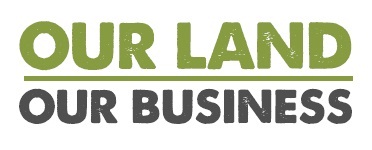Be Ready to Further Corporate Exploitation — World Bank Resuscitates Defunct Doing Business Project
Frederic Mousseau
World Bank’s latest Business Ready or B-Ready project, announced on May 1, 2023, resuscitates the defunct Doing Business Report (DBR). Since its creation two decades ago, the DBR has been used to drive policy and regulatory changes that favor businesses and corporations at the expense of the people and the planet. Ranking countries on the “ease of doing business,” the DBR attributed scores to countries for implementing business-friendly reforms. This heavily impacted governance in countries since it influenced the flow of international aid and “promises” of foreign investment, economic growth, and development.
Following an explosive report to the Bank’s Board of Executive Directors that revealed how senior Bank officials manipulated data to improve rankings for select countries, the DBR was stopped in 2021. The report exposed how then-Bank CEO (and current Managing Director of the International Monetary Fund) Kristalina Georgieva applied “pressure” to “make specific changes to China’s data points to increase its ranking for the 2018 DBR” at a time the country was expected to increase its financial contribution to the Bank’s capital. Simeon Jankov, one of the founders of the DBR and a Senior Bank official, was also implicated in altering Saudi Arabia’s data to boost the country’s ranking — to reward the country for the “important role it played in the Bank community.”
These were not the first revelations of data manipulation by the Bank. In 2018, the World Bank’s then-Chief Economist, Paul Romer, resigned after exposing how the DBR scores for Chile were skewed and politically manipulated to disfavor a progressive government.
But the problems of the DBR go far beyond data manipulation. In 2013, an independent panel of experts criticized the program for ignoring socio-economic benefits of regulation (including environmental protection, safety, and worker protection), noted a lack of scientific evidence to support the indicators, and called for an end to the DBR’s country rankings. None of these critiques were addressed by the Bank, which continued with the same methodology and rankings. The latest case made against the DBR was a scientific paper published in May 2023 that found that improvements in Doing Business scores actually did not raise GDP per capita and that “in the short-run, improved Doing Business scores were associated with lower GDP.”
Civil society organizations from around the world have called for an end to the DBR for a different reason: Its disastrous impact on countries in the Global South, including through deregulation, privatization, and the theft of land and natural resources it encouraged. The 280-organization strong Our Land Our Business Campaign has widely documented and denounced how the DBR orchestrated a race to the bottom — pushing governments to dismantle labor rights, social and environmental safeguards to attract private investors, which became the primary focus of policy making in many countries.
Evidence of manipulation of rankings that surfaced in 2021, was a slap in the face of the poorest countries — forced to deregulate their economies to attract investors against fallacious promises of aid and development. The announcement of its resurrection under a different name adds insult to the injury. Despite some changes in the methodology, the new project, B-Ready, largely retains the spirit and the most problematic biases and flaws of the DBR. These include for instance negative scoring of countries that intend to regulate trade or restrict corporate access to land and natural resources.
So why revive a problematic and widely criticized program?
Since its inception, USAID has been the only financer of the Doing Business project through a Trust Fund managed by the Bank, for two ten-year terms — initially for US$12.6 million in 2004 and US$52.1 million in 2015. Whereas the Doing Business project was officially suspended, it is still financed with close to US$14 million unspent as of June 2023, and a budget running through 2026. Given it is a Trust Fund managed outside of the Bank’s regular programs, the decision to continue the project lies with the US government rather than the Bank itself.
A multilateral institution whose stated mission is to “end extreme poverty and promote shared prosperity in a sustainable way” — on behalf of its wealthiest member state — is instead running a project to prescribe economic reforms for the rest of the world to further enrich businesses and corporations. The world needs development policies and institutions that serve people and protect the planet, not a wolf in sheep’s clothing that is devouring the most vulnerable to maximize corporate profits.

No comments